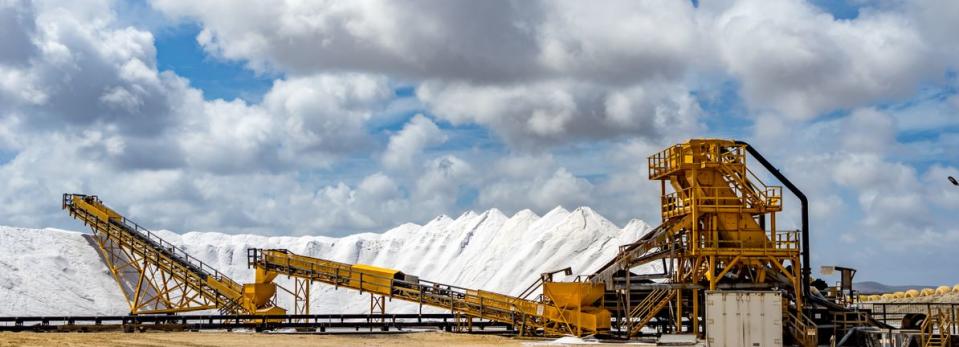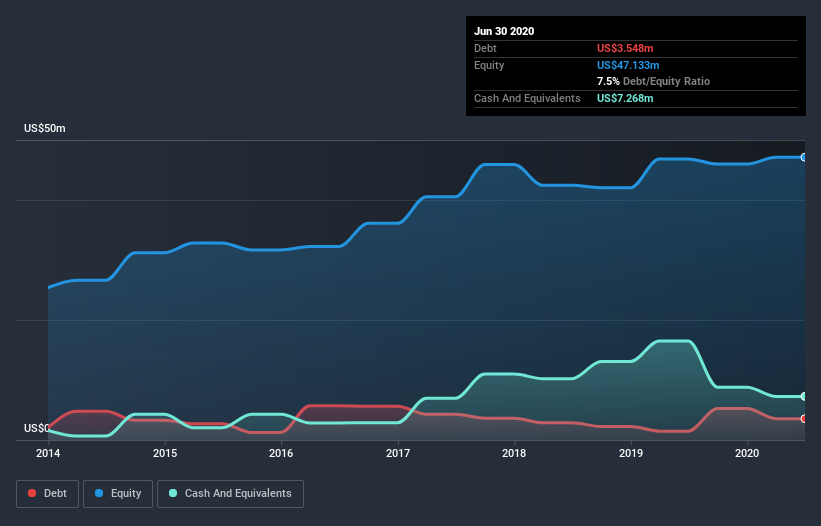These 4 Measures Indicate That Mineral Commodities (ASX:MRC) Is Using Debt Reasonably Well

Warren Buffett famously said, 'Volatility is far from synonymous with risk.' It's only natural to consider a company's balance sheet when you examine how risky it is, since debt is often involved when a business collapses. We note that Mineral Commodities Ltd (ASX:MRC) does have debt on its balance sheet. But the real question is whether this debt is making the company risky.
What Risk Does Debt Bring?
Debt assists a business until the business has trouble paying it off, either with new capital or with free cash flow. In the worst case scenario, a company can go bankrupt if it cannot pay its creditors. However, a more usual (but still expensive) situation is where a company must dilute shareholders at a cheap share price simply to get debt under control. Of course, debt can be an important tool in businesses, particularly capital heavy businesses. When we think about a company's use of debt, we first look at cash and debt together.
Check out our latest analysis for Mineral Commodities
What Is Mineral Commodities's Debt?
You can click the graphic below for the historical numbers, but it shows that as of June 2020 Mineral Commodities had US$3.55m of debt, an increase on US$1.48m, over one year. However, its balance sheet shows it holds US$7.27m in cash, so it actually has US$3.72m net cash.
How Healthy Is Mineral Commodities's Balance Sheet?
The latest balance sheet data shows that Mineral Commodities had liabilities of US$38.2m due within a year, and liabilities of US$6.91m falling due after that. Offsetting these obligations, it had cash of US$7.27m as well as receivables valued at US$20.3m due within 12 months. So its liabilities outweigh the sum of its cash and (near-term) receivables by US$17.5m.
Of course, Mineral Commodities has a market capitalization of US$110.0m, so these liabilities are probably manageable. However, we do think it is worth keeping an eye on its balance sheet strength, as it may change over time. Despite its noteworthy liabilities, Mineral Commodities boasts net cash, so it's fair to say it does not have a heavy debt load!
It is just as well that Mineral Commodities's load is not too heavy, because its EBIT was down 37% over the last year. When a company sees its earnings tank, it can sometimes find its relationships with its lenders turn sour. There's no doubt that we learn most about debt from the balance sheet. But ultimately the future profitability of the business will decide if Mineral Commodities can strengthen its balance sheet over time. So if you're focused on the future you can check out this free report showing analyst profit forecasts.
But our final consideration is also important, because a company cannot pay debt with paper profits; it needs cold hard cash. While Mineral Commodities has net cash on its balance sheet, it's still worth taking a look at its ability to convert earnings before interest and tax (EBIT) to free cash flow, to help us understand how quickly it is building (or eroding) that cash balance. In the last three years, Mineral Commodities's free cash flow amounted to 44% of its EBIT, less than we'd expect. That's not great, when it comes to paying down debt.
Summing up
Although Mineral Commodities's balance sheet isn't particularly strong, due to the total liabilities, it is clearly positive to see that it has net cash of US$3.72m. So we don't have any problem with Mineral Commodities's use of debt. When analysing debt levels, the balance sheet is the obvious place to start. However, not all investment risk resides within the balance sheet - far from it. For instance, we've identified 5 warning signs for Mineral Commodities (2 are a bit unpleasant) you should be aware of.
If, after all that, you're more interested in a fast growing company with a rock-solid balance sheet, then check out our list of net cash growth stocks without delay.
This article by Simply Wall St is general in nature. It does not constitute a recommendation to buy or sell any stock, and does not take account of your objectives, or your financial situation. We aim to bring you long-term focused analysis driven by fundamental data. Note that our analysis may not factor in the latest price-sensitive company announcements or qualitative material. Simply Wall St has no position in any stocks mentioned.
Have feedback on this article? Concerned about the content? Get in touch with us directly. Alternatively, email editorial-team@simplywallst.com.

 Yahoo News
Yahoo News 
